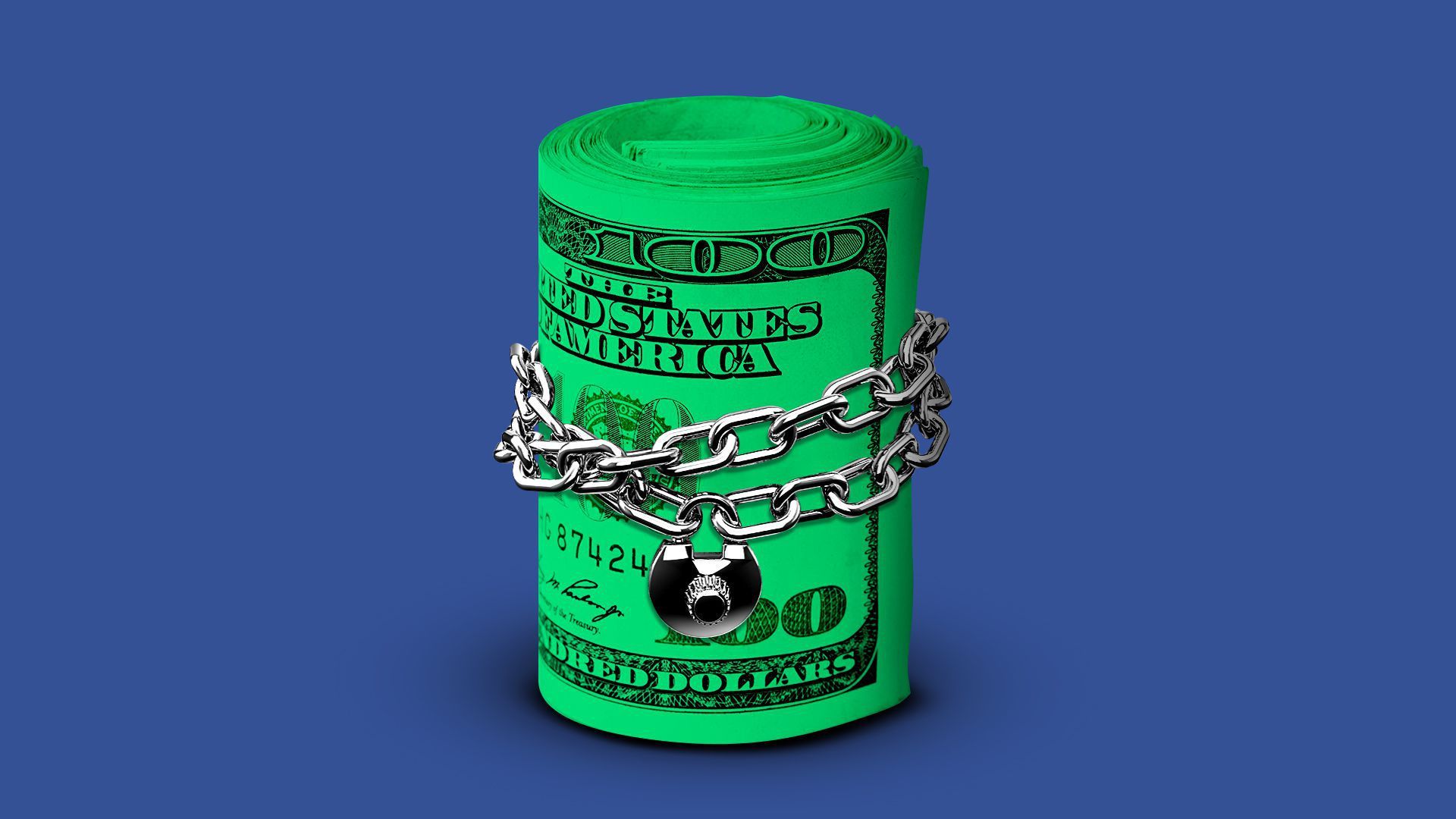Crackdown on illegal cash transactions
Add Axios as your preferred source to
see more of our stories on Google.

Illustration: Aïda Amer/Axios
Unique, non-fungible objects are traded for huge amounts of liquid tender in an industry that's famous for opacity and the ability of rich bidders to evade regulation. That's going to be a central part of a high-profile crypto hearing in Washington Wednesday — but it's also something that's being cracked down on in areas far removed from crypto.
Why it matters: The very rich have been buying assets like antiquities and real estate with de facto impunity for centuries. But now they find themselves on the back foot.
Driving the news: The Treasury Department plans to tell the real estate industry that it's going to have to start checking the identity of buyers paying in cash, just as it currently checks the identity of buyers who need a mortgage.
- By the numbers: $2.3 billion was laundered through U.S. real-estate transactions between 2015 and 2020, per Treasury.
The intrigue: Even well-known buyers can engage in shady transactions. Billionaire hedge fund manager Michael Steinhardt, for instance, was this week forced to surrender 180 looted antiquities he had bought over the years for some $27 million.
- Those antiquities are now valued at $70 million, giving an indication of how hard it is to crack down on the trade in stolen material.
- The antiquities industry is bracing for new know-your-customer regulations, even though those might not have helped in this particular case.
Between the lines: While the art world generally embraces art collectors, most of the antiquities world is deeply suspicious of antiquities collectors. Nearly all important antiquities collections either deliberately or inadvertently include looted material.
- According to the statement of facts in the Steinhardt case, 45 of the items had dirt on them at the time of purchase. (All objects from legally authorized excavations are thoroughly cleaned following their discovery.)
- Steinhardt purchased 171 of the 180 items from "individuals who law-enforcement authorities later determined to be antiquities traffickers—some of whom have been convicted of antiquities trafficking."
The bottom line: Real estate, art and antiquities are being dragged slowly into the sunlight. NFTs, not so much.
Go deeper: Crypto meets the real world
